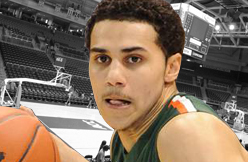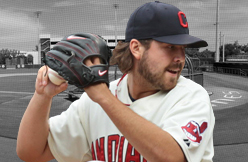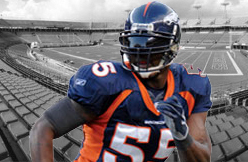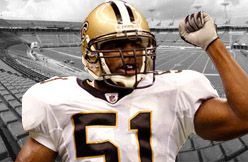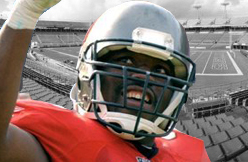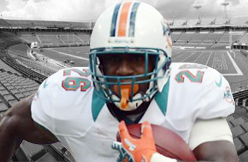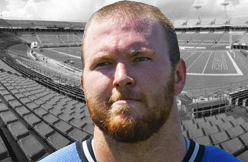Each day seems the same to Venjah Hunte. Up at 5:30 a.m. Breakfast. Back to sleep. Cell check. Cut hair, play basketball or cards for an hour or two in the recreation yard at the Metro West Detention Center in Miami. Shower. Locked down again.
Time is measured by the two or three tear-choked times each month he sees family through thick glass separating visitors. By reading and working out and watching television and praying. By repeating the solitary routine since he was booked at 8:30 p.m. on Dec. 3, 2007, and became inmate No. 070106122. By waiting.
“I’m always doing or trying to do something to keep busy,” Hunte wrote in one of multiple letters to The Washington Times describing jail life. “It makes the day go by faster.”
Blood and regret cover the November night 5 1/2 years ago that locked him up and left Sean Taylor dead. The night lingers, something even time can’t push away as the case’s quiet drama continues. The lone resolution is the grave of the Washington Redskins‘ star safety. The first verse of Psalm 23 is etched near the base: “The Lord is my shepherd, I shall not want.” Two verses from the same chapter were tattooed on Taylor’s left shoulder, the autopsy report noted.
Hunte took a plea bargain in 2008 that landed him a 29-year sentence for second-degree murder in exchange for testimony against the four other defendants: Timmy Lee Brown, Jason Scott Mitchell, Eric Rivera and Charles K. Wardlow. Hunte initially tried to back out of the agreement, but faced two life sentences if he did so and dropped the effort in 2009. Trials for the four others, charged with first-degree murder in Miami-Dade Circuit Court, have been relentlessly delayed since the first attempt in April 2008. Last year, for instance, a trial date of April 16 became Nov. 5, then April 5 of this year. The latest try is set for August.
The four defendants, all jailed, didn’t respond to letters seeking comment.
“This is not unusual … when you have so many co-defendants and a high-profile case,” said Landon Miller, who represented Mitchell in the case’s early stages but is no longer associated with the proceedings. “High profile makes courts more cautious. You only want to try a case once. You don’t want it to come back on appeal.”
Another attorney knowledgeable about the case attributed the delays, in part, to defendants expending every effort to draw out the proceedings in hopes of discovering a path, however unlikely, out of jail. They face life in prison if convicted.
Earlier this month, Wardlow asked the court to be removed from the Pre-Trial Detention Center in Miami because of medical concerns. That continued his long-running correspondence with the court over such matters — including, at one point, requesting a “full-body scan” and to be “checked for everything.” In one letter to 11th Judicial Circuit Judge Dennis J. Murphy, Wardlow claimed problems ranging from a “tingly feeling” in his extremities to pain in his chest and back to coughing up “white things.” He asked that his kidneys be examined, wanted to be re-tested for “siffless” diagnosed in 2011 and wondered if he had cancer.
“I need help before it’s too late,” wrote the inmate, whose father, Vince E. Wardlow, is serving a life sentence at South Bay (Fla.) Correctional Facility for second-degree murder, “please, please.”
A scrawled heading to the note insisted it was Wardlow’s last communication on the matter. Time drags on. So do the requests.
• • •
The long list of aborted trial dates is rivaled only by continued turnover among the defense attorneys. Rivera, identified as the alleged shooter in the original indictment, filed a motion earlier this month to represent himself. Last year, he dropped attorney Clinton Pitts a month before one of the trial dates. A former attorney for Wardlow, John E. Evans III, was disbarred in 2011. He was released from federal prison last month after serving an 18-month sentence after pleading guilty to wire fraud.
Numerous attorneys and others connected to the case in the present or past, including Evans, declined to comment or didn’t respond to requests.
A wide-ranging gag order in place since 2008 from Judge Murphy shrouds much of the case and postponements in secrecy. Key documents, like Hunte’s deposition last year, have been sealed and hearings closed to media. Prosecutor Reid Rubin, attorneys, police and others connected to the case aren’t permitted to speak publicly about it.
“The cumulative effect of the media coverage and statements made by various persons if allowed to continue would deprive the defendants of their right to a fair trial,” the order said.
The order’s four pages are why Taylor’s father, Pedro, hasn’t said much in recent years. Interview requests are politely declined until the trials finish. His most extensive public comments in recent years came during a brief conversation last fall with reporters on the sideline at FedEx Field.
“There’s never going to be any closure,” said Pedro, who is police chief in Florida City, Fla. “It’s hard to lose a child. It’s hard to even fathom me burying a kid. I respect the fact that God makes no mistakes. But at the same time, there won’t ever be closure because it’s so big and my heart’s too big. When you lose something that big, it really leaves a pit inside you. It’s hard. Very hard. But he’ll always live long in my life. He’ll always live forever in my life.”
Could the trial, any trial, really, be a relief?
“It will,” he said. “It will.”
• • •
So, lives push forward without Taylor. A 15-minute drive from the cemetery where he’s buried, if traffic is smooth, sits his former home on Old Cutler Road. Taylor bought the four-bedroom property surrounded by a white wall in 2005. Owed $820,132.91 from the remaining principal by 2010, in addition to interest, taxes and fees, Wachovia Mortgage Co. foreclosed. The property became overgrown, drawing a warning letter from Palmetto Bay’s code compliance officer to clean up within five days or face a $250 sanction and other penalties.
Eventually the home sold in 2011 for $460,000, just over half of what Taylor paid. The real estate listing, complete with pictures of the empty, spotless home, didn’t hint at the horror that swept through on that November night.
“Paved patio, excellent for entertainment,” the listing read. “Shade trees. Beautiful grounds. Foyer entrance. Fireplace in living room. Open floor plan.”
That’s where the five men arrived at 1:40 a.m. The break-in seems as distant to Hunte as freedom. Taylor’s bedroom door was kicked down. Two gunshots. One bullet plunged into Taylor’s right thigh, cut the femoral artery and, 27 hours later, ended his life at age 24.
Hunte has insisted he never ventured inside. The night isn’t something he thinks about much. In one letter to The Times, he apologized to Taylor’s family,
admitted the words were inadequate, but sought forgiveness anyway. The consequences, though, stalk him day after isolated day.
“I wish I would’ve had better judgement of the people I surrounded myself with that night,” he wrote. “Last, I just wish [Taylor] hadn’t passed away. It was an unfortunate situation, but there was no malice on my behalf.”
He writes about change, big and small. Not cursing as much. Doing life the right way. Not ending up back in jail. Thinking through decisions before he makes them, like the three drug-related charges he faced in Lee County, Fla., in the months before the drive across the state to Taylor’s home. Not chasing money. Not living the fast life.
There’s a book he wants to write to make sense of what happened and, in his mind, honor Taylor’s family.
“Most of all,” he wrote, “to give young men all across the country an alternative to the things there [sic] going through, no matter the race or bringing up. … I can’t change the world, but that one person can go a long way.”
There’s plenty of time to think after the night that won’t end.

(washingtontimes.com)



